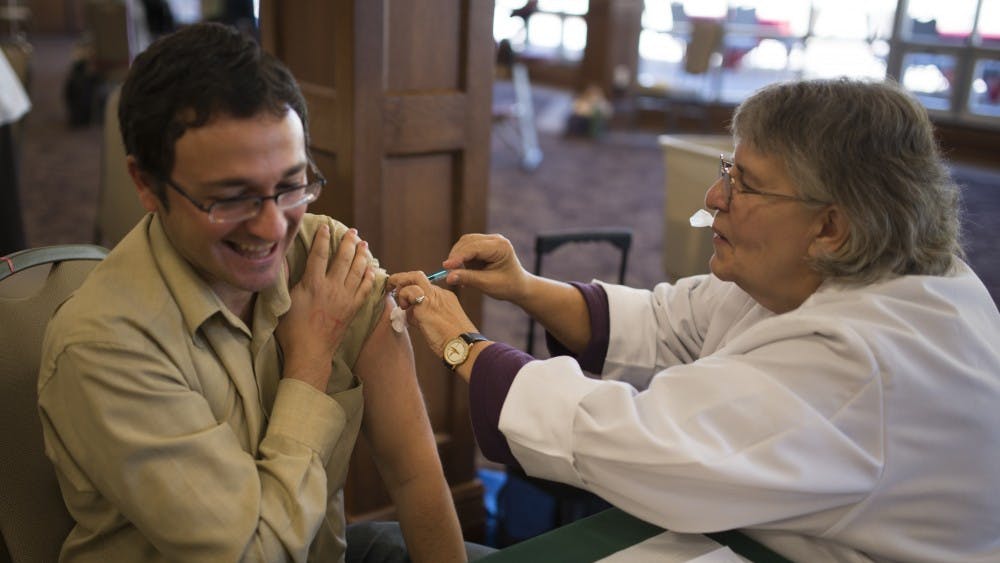Headache, tiredness, fever, sore throat; the list goes on and on. Mononucleosis is one of the most common illnesses on college campuses nationwide, and IU is no exception, according to an information pamphlet provided by the IU Health Center. \nDuring all seasons of the year hundreds of students go into the Health Center complaining of a variety of symptoms from decreased appetite to general exhaustion, said Health Center nurse practitioner Karlyn Doty. A blood test can tell those students if they have contracted the virus commonly known as "mono."\nAccording to the pamphlet, mono attacks the lymphatic system and is typically characterized by fatigue, fever, sore throat and swollen glands. \nIt is often depicted as an illness that keeps patients bedridden for weeks while they recover, but Doty said this is a huge misrepresentation. \n"Mono is given a bad rap," Doty said. "Most people are going to have mono and never even know they have it." \nUntreated mono can be spread to others. Doty said studies show that 70 to 90 percent of carriers shed the virus up to six months after initial infection. Even after someone "gets over" mono, they can still spread the infection for several months. \nEven though it is traditionally known as the "kissing disease," anytime that saliva is exchanged, mono can spread, according to the pamphlet. This includes sharing drinks, food and even lip balm. Typically, the symptoms of mono start out similar to those of a regular cold. \n"Symptoms vary widely," Doty said. "You might notice a sore throat, being tired, swollen lymph nodes, voice changes or really bad breath." \nEven though symptoms may be common, there is a specific blood test to know for sure. Doty said students should not be too worried about pain when it comes to the blood test. \n"It's nothing like giving blood," she said. "Sometimes we can even diagnose without giving the blood test." \nDoty said another issue that shouldn't keep students from visiting the health center is cost. \n"The medicine is certainly not expensive," Doty said. "Because it is a viral infection, you don't need antibiotics. We're really treating the symptoms." \nTreatment for mono usually includes extra rest, plenty of fluids and a well balanced diet, according to the pamphlet. \nJunior Kate Ramsay got mononucleosis the summer before coming to IU. \n"I almost didn't get to come to IU because they thought it was going to be worse than it was," she said. "It wasn't bad at all." \nRamsay experienced relatively typical symptoms and said she felt tired and her throat swelled up for about three days. \n"For most of the time I had mono, I didn't even know it," she said. "I slept a lot, but I thought it was just from going out." \nRamsay said that she did have the blood test done to confirm her mono. \n"I thought I was going to be tired forever, but it really didn't last long," she said. \nDoty said those that have already had mono have no reason to worry. "You're almost more likely to win the lottery than get mono twice," she said.
Views on mono usually incorrect
Mononucleosis is a common virus that's often misunderstood
Get stories like this in your inbox
Subscribe





